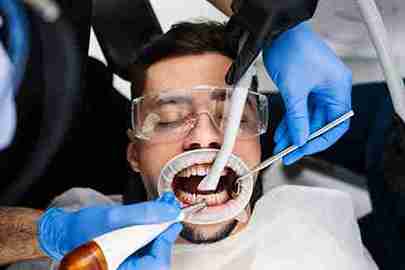Dental Health: A Guide to a Healthy Smile and Strong Gums

Dental health is more than just having white teeth or a bright smile—it is an essential part of overall wellness. Healthy teeth and gums are necessary for proper chewing, clear speech, and preventing serious health conditions. Poor oral hygiene can lead to infections, tooth loss, and even affect the heart, lungs, and other organs. Maintaining dental health from childhood through adulthood improves both appearance and general well-being.
Why Dental Health Is Important
Dental health affects more than just the mouth. Key reasons to prioritize oral care include:
- Prevents Cavities and Tooth Decay – Regular brushing and flossing remove plaque and harmful bacteria that can damage teeth.
- Supports Gums – Strong gums prevent infections such as gingivitis and periodontitis.
- Enhances Digestion – Proper chewing breaks down food, helping the stomach and intestines absorb nutrients efficiently.
- Improves Speech – Teeth and gums are essential for clear pronunciation.
- Boosts Confidence – A healthy smile enhances self-esteem and social interactions.
- Reduces Risk of Other Health Issues – Poor oral hygiene is linked to heart disease, diabetes, and respiratory problems.
Common Dental Problems
Ignoring oral care can lead to a variety of dental issues:
- Cavities – Holes in teeth caused by plaque and bacterial activity.
- Gum Disease – Infection and inflammation that can lead to tooth loss.
- Bad Breath – Often caused by bacteria buildup or gum disease.
- Tooth Sensitivity – Pain caused by enamel erosion when consuming hot, cold, or sweet foods.
- Oral Infections – Untreated infections can spread to other parts of the body.
Recognizing early symptoms and seeking care can prevent long-term damage.

Causes of Poor Dental Health
Several factors can contribute to dental problems:
- Poor Oral Hygiene – Skipping brushing or flossing allows plaque to build up.
- Unhealthy Diet – High sugar and acidic foods weaken enamel and cause decay.
- Tobacco Use – Smoking or chewing tobacco increases the risk of gum disease and oral cancer.
- Stress – Leads to teeth grinding, which wears down enamel and strains the jaw.
- Chronic Diseases – Conditions like diabetes can affect oral health.
- Skipping Dental Checkups – Ignoring regular visits can allow small problems to worsen.
Daily Habits for Healthy Teeth
Maintaining dental health can be simple with consistent daily habits:
1. Brush Properly Twice a Day
Use a soft-bristled toothbrush and fluoride toothpaste. Brush for two minutes, covering all surfaces of the teeth.
2. Floss Daily
Flossing removes food particles and plaque from areas between teeth where toothbrushes cannot reach.
3. Rinse Your Mouth
Rinse with water after meals to remove leftover food and reduce bacterial growth.
4. Limit Sugary and Acidic Foods
Sugary snacks and acidic drinks erode enamel and increase the risk of cavities.
5. Drink Plenty of Water
Water aids saliva production, which naturally cleans teeth and protects them from harmful bacteria.
6. Avoid Tobacco
Tobacco damages gums, stains teeth, and increases the risk of oral cancer.
Regular Dental Checkups
Even with excellent home care, dental visits are essential. Dentists can:
- Detect cavities and gum disease early
- Remove tartar buildup through professional cleaning
- Provide guidance on proper oral hygiene
- Screen for oral cancer and other serious conditions
Visiting a dentist at least twice a year is recommended to maintain optimal dental health.
Lifestyle Tips for Stronger Teeth
Beyond brushing and flossing, lifestyle choices can improve oral health:
- Eat Nutrient-Rich Foods – Foods rich in calcium, vitamin D, and phosphorus strengthen teeth.
- Chew Sugar-Free Gum – Stimulates saliva, which neutralizes acids and removes food particles.
- Manage Stress – Helps prevent teeth grinding and jaw tension.
- Protect Teeth During Sports – Use mouthguards to avoid injuries.
Consistent practice of these habits helps maintain strong teeth and healthy gums over time.
Benefits of Maintaining Dental Health
Investing in oral care provides multiple benefits:
- Fresh breath and a bright, attractive smile
- Strong, long-lasting teeth
- Reduced risk of cavities, gum disease, and oral infections
- Improved digestion and nutrient absorption
- Greater confidence and better social interactions
Prioritizing dental health contributes to overall well-being and quality of life.
Final Thoughts
Dental health is not just a cosmetic concern; it is a vital part of overall wellness. By practicing consistent oral hygiene, eating a balanced diet, avoiding harmful habits, and visiting a dentist regularly, anyone can protect their teeth and gums. Healthy teeth and gums support energy, immunity, and confidence, creating a foundation for a healthier life.
This approach has proven to be a dependable aid in addressing dental health concerns effectively.



